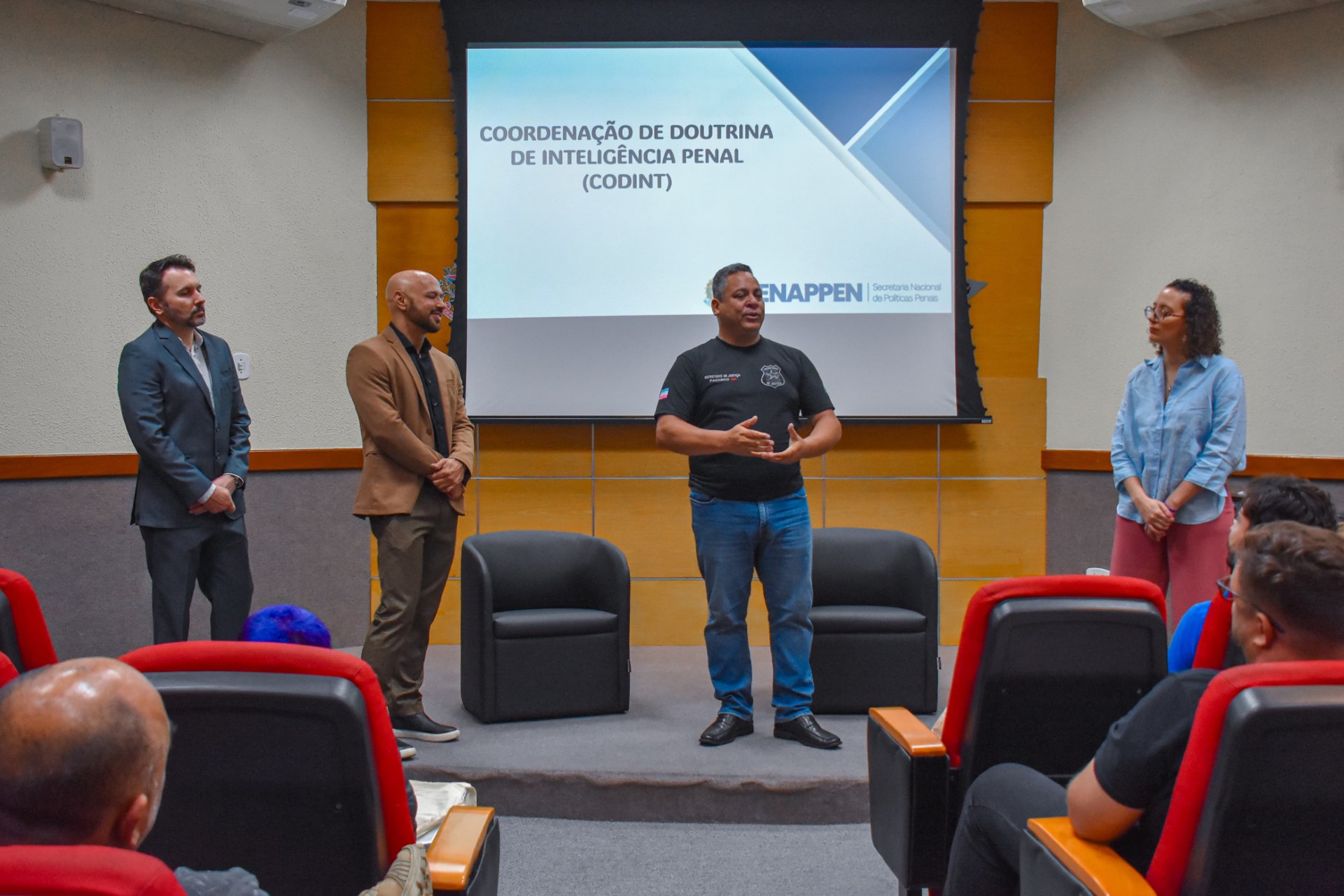
Image Copyright: SENAPPEN
Held between 26 and 28 of March in Vitória, Brazil, the training in counterintelligence in partnership with the Espírito Santo Justice Secretariat (SEJUS) marked the restarting of the training activities developed as part of the partnership between the United Nations Office on Drugs and Crime (UNODC) and the National Secretariat of Penal Policy (SENAPPEN) of the Ministry of Justice and Public Security (MJSP), through its Penitentiary Intelligence Directorate.
During the three days of training, 40 penal police officers and representatives of the Federal Justiciary, Federal Police, Federal Highway Police, and the Military Fire Brigade of Espírito Santo were trained, marking the commitment of the institutions involved to strengthening their intelligence areas, with in-depth training on topics such as personal and property security, data protection and computerized systems, and the development of security plans.
In this sense, Espírito Santo's Justice Secretary, Rafael Pacheco, emphasized the importance of the activity. "These competencies are essential to ensure that our penal police officers are prepared to identify, mitigate, and respond to possible threats to the prison system. The aim is to prevent threats, create an even safer environment, and be prepared for any crisis," he explained.
The activity took place through a joint effort between the PRIS-COOP project, implemented by UNODC in Brazil, and SENAPPEN. Throughout 2023, this partnership enabled the training of more than 435 penal police officers and other representatives from more than 40 national institutions, in a series of training courses aimed at disseminating intelligence knowledge. One of the highlights of the partnerships was the train-the-trainers activities, which made it possible to disseminate the lessons learned.
PRIS-COOP Project - The training was held as part of UNODC's PRIS-COOP project, with the support of the US State Department's Bureau of International Narcotics and Law Enforcement Affairs (INL). The initiative promotes the dissemination and adoption of innovative and inter-institutional practices to strengthen prison management and the fight against organised crime in Brazil and Paraguay, in line with minimum international standards.
UN Conventions - The training promoted by UNODC is related to its role as guardian of the International Convention against Transnational Organised Crime (UNTOC), and the United Nations Standard Minimum Rules for the Treatment of Prisoners, the Mandela and Bangkok Rules.
For more information on UNODC's work on prison reform, click here.
To find out more about UNODC's work on organised crime, click here.